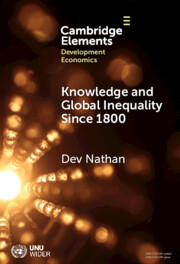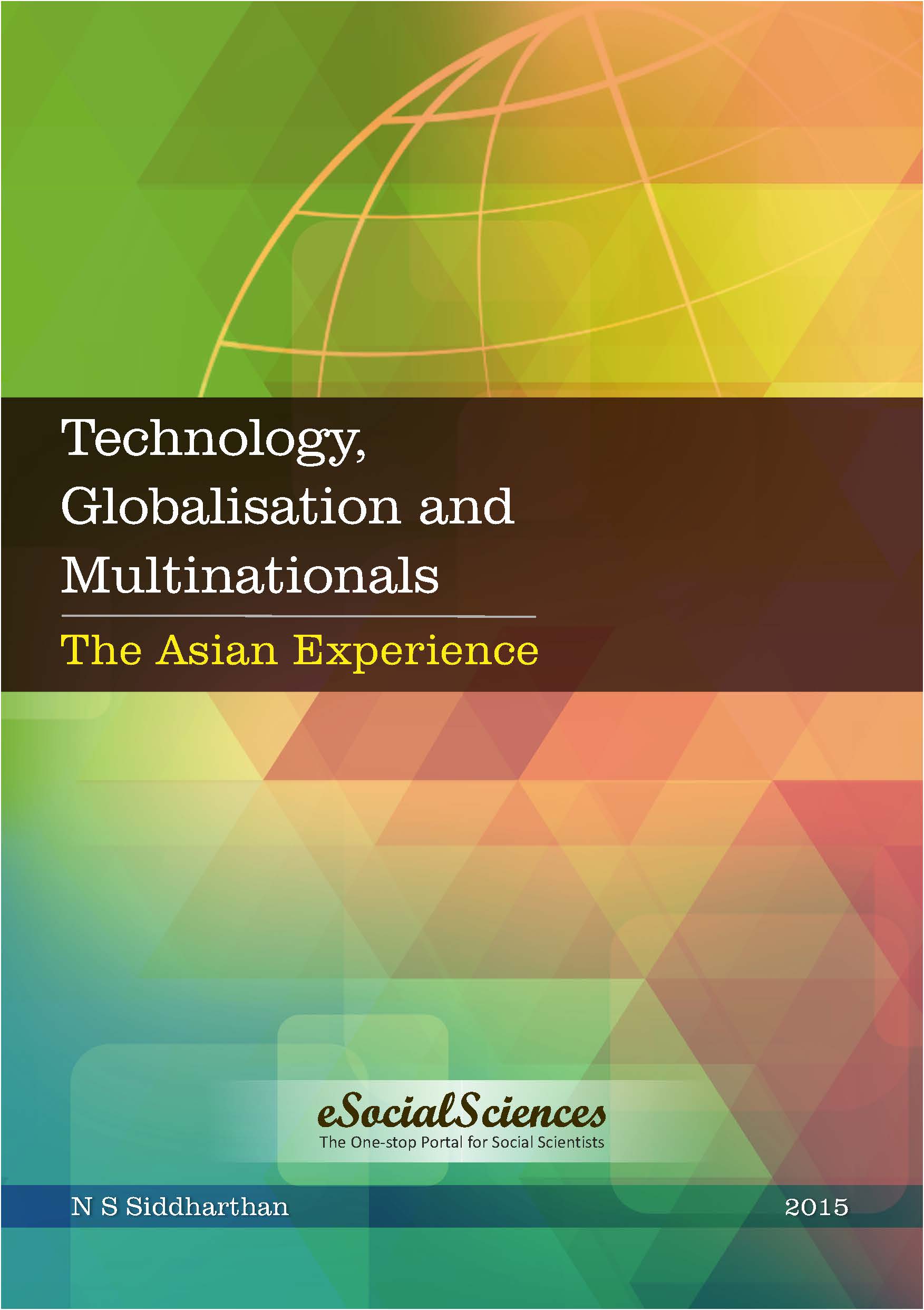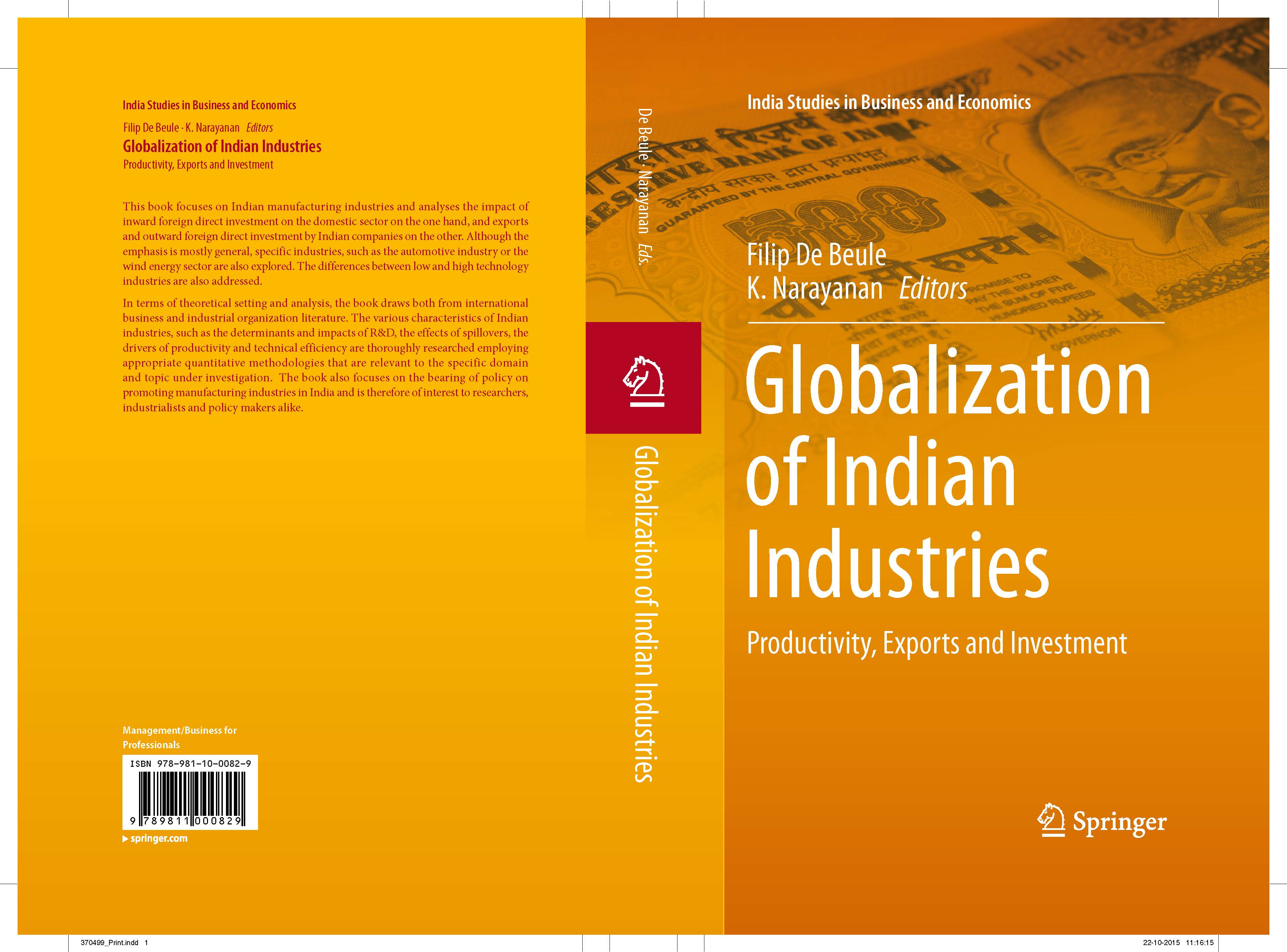|
19. Knowledge and Global Inequality Since 1800 Interrogating the Present as History Published online by Cambridge University Press: 11 April 2024
18. Industrialization and Economic Diversification Routledge (2022) ISBN 9781032156866 Banji Oyelaran-Oyeyinka, Kaushalesh Lal Economic diversification entails a shift away from a single income source toward multiple income sources from an increasing spectrum of sectors and markets. A persistent concern for some Asian and African economies is their reliance on commodity exports and how they are exposed to the risk of export volatility and income instability. The Covid-19 pandemic and previous oil crashes have demonstrated the adverse impact on such economies. This book provides a systemic analysis of sustainable economic development through economic diversification. The book analyzes diversification and development experiences from comparative perspectives of Asia and Africa. It also investigates determinants of export diversification differentiated by commodities-dependence versus manufactured products and looks at the roles of various institutions and governance of institutions in export diversification. This book will provide policy insights into how different degrees of specialisation in exports across countries have affected outcomes in terms of living standards, economic growth and employment. |
|
|
17. Technology, Globalisation and Multinationals: The Asian Experience eSocialSciences (2021) N S Siddharthan |
|
|
16. FDI, Technology and Innovation Springer (2020) Editors: N.S. Siddharthan, K. Narayanan ISBN: 978-981-15-3611-3 This book concentrates on major changes that are now taking place in the fields of technology, foreign direct investment (FDI), trade and development strategies, with a particular focus on India. Arguably, these changes are likely to differ from those that the world has experienced over the past few decades; in particular, now that many countries have globalised their economies. The book begins by reviewing the changing pattern of FDI flows and technologies among developed and emerging economies, before identifying the determinants of this change by presenting specific studies on Indian industries. It then addresses key questions such as: How are knowledge spillover mechanisms operationalised, and what are the implications of the internationalisation of the IPR process? The role of FDI is also analysed in order to make policy recommendations for fostering innovation in emerging economies like India. The respective chapters examine the process through which technological paradigm and trajectory shifts are taking place, the factors that facilitate such shifts, the changing pattern of FDI, and the shifting focus of international trade and development strategies – four broad themes that are interrelated and mutually reinforcing. The book offers important takeaways for all social scientists, technologists and business schools interested in Indian studies; it will also benefit researchers whose work involves development economics, industrial organisation and technology, and the economy/society interface. Book review: Choudhury, R. N. (2021) ‘Book review: Siddharthan, N. S., and Narayanan, K. (eds.). 2020. FDI, Technology and Innovation’, Millennial Asia, 12(2), pp. 255–258. |
|
|
15. Globalisation of Technology Springer (2017) Editors: N.S. Siddharthan, K. Narayanan ISBN: 978-981-10-5423-5 This book examines the globalisation of technology and innovation in the modern world. Enterprises globalise in several ways, e.g. by exporting, sourcing components and materials from other countries (B2B commerce), outsourcing, licensing their technologies and production, and foreign direct investments (FDI). Transaction costs and location advantages play a crucial role in selecting the best mode of globalisation. A number of important questions – like what are the pull and push factors contributing to FDI, does outward FDI from a developing country like India contribute to participation in international production networks, and does FDI mitigate business cycle co-movements – keep cropping up in the growing body of knowledge on the globalisation of technology. This book addresses these issues, as well as the consequences of FDI – in particular, with regard to technology, productivity, and R&D spillovers. Issues related to innovations, R&D, intra-industry trade, and knowledge management are also discussed. |
|
|
14. Technology: Corporate and Social Dimensions Springer (2016) Editors: N.S. Siddharthan, K. Narayanan ISBN: 978-981-10-1683-7 (Print) 978-981-10-1684-4 (Online) The Indian economy is considered to be one of the fastest growing economies of the world with India amongst the most important G-20 economies. Ever since the Indian economy made its presence felt on the global platform, the research community is now even more interested in studying and analyzing what India has to offer. This series aims to bring forth the latest studies and research about India from the areas of economics, business, and management science. The titles featured in this series will present rigorous empirical research, often accompanied by policy recommendations, evoke and evaluate various aspects of the economy and the business and management landscape in India, with a special focus on India’s relationship with the world in terms of business and trade. |
|
|
13. Technology, Globalisation and Multinationals eSocialSciences (2016) N. S. Siddharthan |
|
|
12. Globalization of Indian Industries: Productivity, Exports and Investment Springer, (2016) Editors: De Beule, Filip, K. Narayanan This book focuses on Indian manufacturing industries and analyses the impact of inward foreign direct investment on the domestic sector on the one hand, and exports and outward foreign direct investment by Indian companies on the other. Although the emphasis is mostly general, specific industries, such as the automotive industry or the wind energy sector are also explored. The differences between low and high technology industries are also addressed. In terms of theoretical setting and analysis, the book draws both from international business and industrial organization literature. The various characteristics of Indian industries, such as the determinants and impacts of R&D, the effects of spillovers, the drivers of productivity and technical efficiency are thoroughly researched employing appropriate quantitative methodologies that are relevant to the specific domain and topic under investigation. The book also focuses on the bearing of policy on promoting manufacturing industries in India and is therefore of interest to researchers, industrialists and policy makers alike. |
|
|
11. Innovation and Global Competitiveness:Case of India’s Manufacturing Sector Routledge, (2016) Editors: N. S. Siddharthan and K. Narayanan |
 |
|
10. Stagnant Manufacturing: Governance and Policy Slack Published by IKF (IRIS Knowledge Foundation), Mumbai, India, jointly with Forum for Global Knowledge Sharing Guest Editor: Prof N.S. Siddharthan |
|
|
9. Innovation and global competitiveness: Case of India’s Manufacturing Sector Special issue of the Journal Innovation and Development, Routledge, 3(2), 2013 Guest editors: N S Siddharthan and K Narayanan The set of six papers published in this special issue were originally presented at the Seventh Annual Conference of the Forum for Global Knowledge sharing (Knowledge Forumhttp://fgks.in), held in Pune, November 2012. The six papers deal with several issues relating to this theme. The issues relate to:
The papers included in this issue cover pharmaceuticals (2 papers), automobile sector (2 papers), industrial machinery (1 paper), and regional innovation systems and small and medium firms. |
|
|
8. Human Capital and Development: The Indian Experience Springer, 2013, i-ix, 1-155 Editors: N S Siddharthan and K Narayanan Select papers from the Annual Conference, hosted by IIT Bombay, November 11-12, 2010 The theme “Human Capital and Development” has several dimensions and the papers included in the volume covers several dimensions and discuss the following aspects:
|
|
|
7. Agglomeration, Technology Clusters and Networks Special issue of the journal, “Science, Technology and Society”, 17(3), 2012 Guest Editors: Ashok Jain, K Narayanan and N S Siddharthan Select papers from the Sixth Annual Conference hosted by the Goa University, November 18-20, 2011 Papers included in this issue extend literature in this area by analysing new aspects hitherto neglected by earlier studies.
|
|
|
6. Innovation and Enterprise Development Special issue of the journal “Science, Technology and Society”, 18(3), 2011 Guest Editors: N S Siddharthan and S R Hashim Select papers from the conference held at the Madras School of Economics on Frontier Issues in Technology, Development and Environment, March 19-21, 2010 The papers included in the special issue deal with the following issues:
|
|
|
5. Contributions to Indian Social Science, IASSI Quarterly, 29 (3&4), 2010 Guest Editor: N S Siddharthan Select papers from the conference held at the Madras School of Economics on Frontier Issues in Technology, Development and Environment, March 19-21, 2010 |
|
|
4. Indian and Chinese Enterprises: Global trade, Technology and Investment Regimes, 2010 Routledge, New Delhi and London. Editors: N. S. Siddharthan and K. Narayanan Select papers from 2007 Annual Conference of the Forum for Global Knowledge Sharing held at IIT Bombay While much has been said and written about their high GDP growth rates, not enough attention has been paid to the globalisation of Indian and Chinese enterprises. Operating in high-technology industries like IT, automobiles, electronics, bio-technology and pharmaceuticals, Indian and Chinese enterprises have succeeded in networking with international firms and have established equity as well as non-equity strategic alliances with them. They have been acquiring foreign enterprises as well as investing abroad and launching joint ventures with foreign firms. Several of the small and medium enterprises have also successfully globalised using IT tools like business-to-business commerce. Additionally, the significant strides in science and technology made by these two countries have resulted in R&D work being outsourced to them by foreign firms. In order to analyse the issues thrown up by these developments, this volume employs a multidisciplinary and eclectic approach, bringing together scholars from different countries and disciplines —from economics and business management to science and technology. The articles discuss a host issues, including the international institutional and environmental background within which these firms have to globalise; the respective Indian and Chinese industrial scenes; their IT software sectors ; the internationalisation of R&D activities and foreign capital inflows. While the specific trajectories taken by these two globalising economies are markedly different, there is a strong belief that, taken together, the emerging economies of China and India will take up the slack in international demand and provide an alternative growth pole for the world. |
|
|
3. Changing Policy Regimes and Corporate Performance, 2009 Oxford University Press, New Delhi, i-ix. 1-221 B. L. Pandit and N. S. Siddharthan Greater competitiveness and easy access to new technology and markets—the results of economic reforms—are ingredients for accelerating growth. This volume chronicles the sequence of reforms starting from deregulating measures in the mid-1980s to the economic reforms of the 1990s and the impact these regimes had on corporate challenges and their performance in India. Looking at the private sector, the book focuses on inter firm analysis of variations in foreign direct investment, spillovers from multinational investments, R&D and technology acquisition, growth and employment, and foreign portfolio investment. In an industry consisting of a variety of firms that differ in terms of their access to technology, knowledge, and other intangible assets, the volume assesses the impact of liberalization on productivity gaps of enterprises. |
|
|
2. High Tech Industries, Employment and Global Competitiveness, 2008 Routledge, London, New Yoark and New Delhi, i-xi, 1-268. Editors: S. R. Hashim and N. S. Siddharthan Select papers from 2006 Annual Conference of the Forum for Global Knowledge Sharing held at India International Centre, New Delhi High-tech, knowledge-based industries like information technology, biotechnology, and pharmaceuticals have played an important role in the transition of the Indian and Chinese economies—the two largest and fastest developing economies in the world today. This process has been characteristically marked by the expanding reach of multinational enterprises, flows of foreign direct investment, unprecedented advancement of information and communication technologies (ICT) and knowledge-based industries, and infusion of ICT across the entire spectrum of industries and activities. This interdisciplinary book offers an in-depth understanding of the behaviour of firms in these industries, analysing the strategies they adopt in a globally competitive environment, the role they have played in ushering in the growth revolution in China and India, and the contribution they have made to the nature and growth of employment. Based mostly on data collected through fieldwork and surveys, it discusses the emerging nature of scientific and technological developments like nanotechnology, novel materials, spintronics, and quantum computers, suggesting that in the future, knowledge and technology will become the real sources of wealth for nations. |
|
|
1. Global Business, Technology and Knowledge Sharing: Lessons for Developing Country Enterprises, 2002 Macmillan, New Delhi, i-xvii, 1-217 N. S. Siddharthan and Y. S. Rajan Within the expanse of nine chapters, the book discusses the following issues:
|
Last updated on 22-01-2022


















